Examining Lynyrd Skynyrd's country, rock influence 50 years later
- Oops!Something went wrong.Please try again later.
- Oops!Something went wrong.Please try again later.
Nashville's country music scene is rekindling its love affair with Southern rock.
The roots of this relationship date back to the early 1970s and wind down the highway through Atlanta to Jacksonville, Florida, where Southern rock act Lynyrd Skynyrd formed. In August of 1973, the band released "Pronounced 'Lĕh-'nérd 'Skin-'nérd" -- a debut album that fused hard British rock and gospel blues-influenced country soul. The album created a bridge that amplified and rock and roll in counterbalance to Nashville's powerful countrypolitan stylings.
Artists like longtime Southern rock devotee Eric Church and Lainey Wilson often discuss the impact of acts like Creedence Clearwater Revival and the Rolling Stones on their musical evolution.
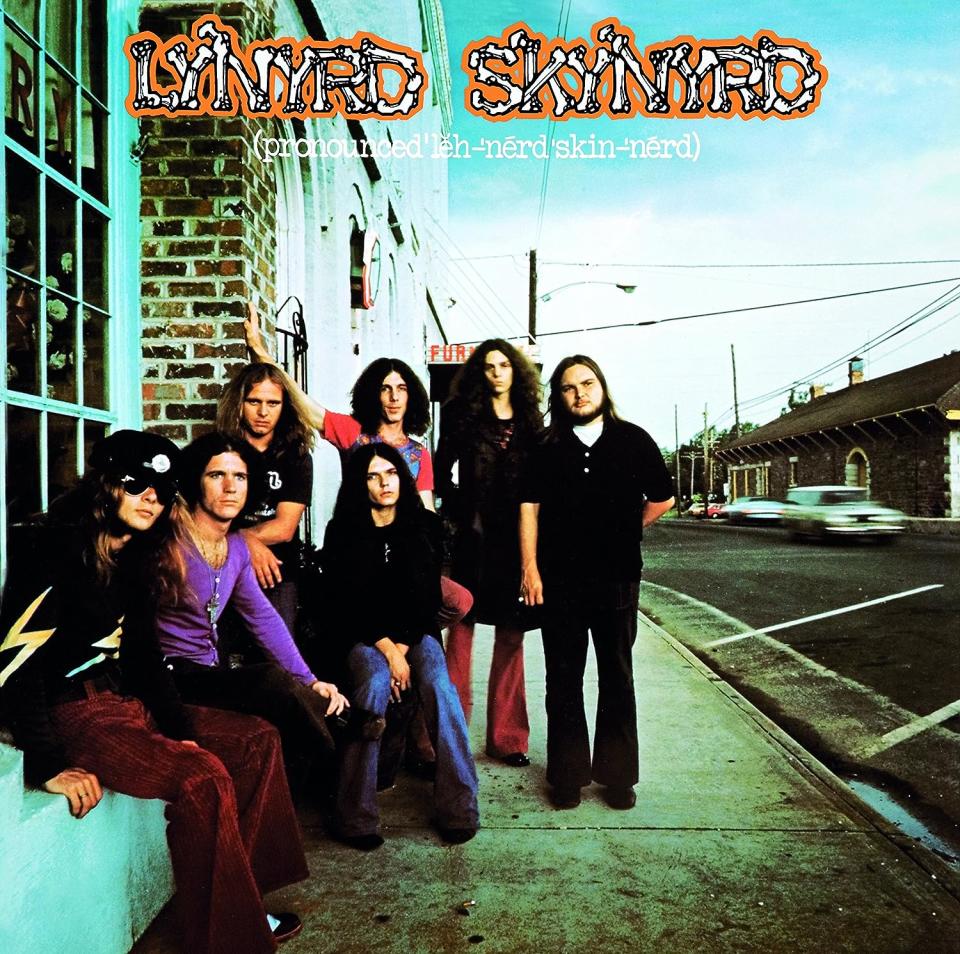
One listen to WIlson's 2022-released and critically-acclaimed album "Bell Bottom Country" includes live concert-favorite album tracks like "Hillbilly Hippie," which bear influences from acts like CCR. Moreover, Wilson's cover of the Stones' "You Can't Always Get What You Want" is a favorite on Broken Bow Records' 2023-released "Stoned Cold Country" Stones compilation.
But the link between that era of rock and today's country music -- both sonically and socially -- was strengthened by a five-hour journey from Duval County, Florida, where members of Lynyrd Skynyrd had attended Robert E. Lee High School, to Funochio's Nightclub on Peachtree Street in Atlanta.
In the years before that road trip, Skynyrd had been a baseball-loving, long-haired group of high school dropouts in their 20s -- local musicians who loved Rolling Stones jam sessions.
Within five years, they developed into Jacksonville's top band.
Skynyrd was eventually lured to Atlanta by their manager, Phil Waldren, who had established Capricorn Records, an independent production outlet distributed by Atlantic/Atco Records, in nearby Macon, Georgia. Waldren had worked with Al Green, Otis Redding, Sam & Dave, Percy Sledge and another Jacksonville-based rock act, the Allman Brothers Band.
The band soon crossed paths with another musical luminary, who would play a key role in their legacy.
'They floored me for three consecutive nights...'
Enter Al Kooper.
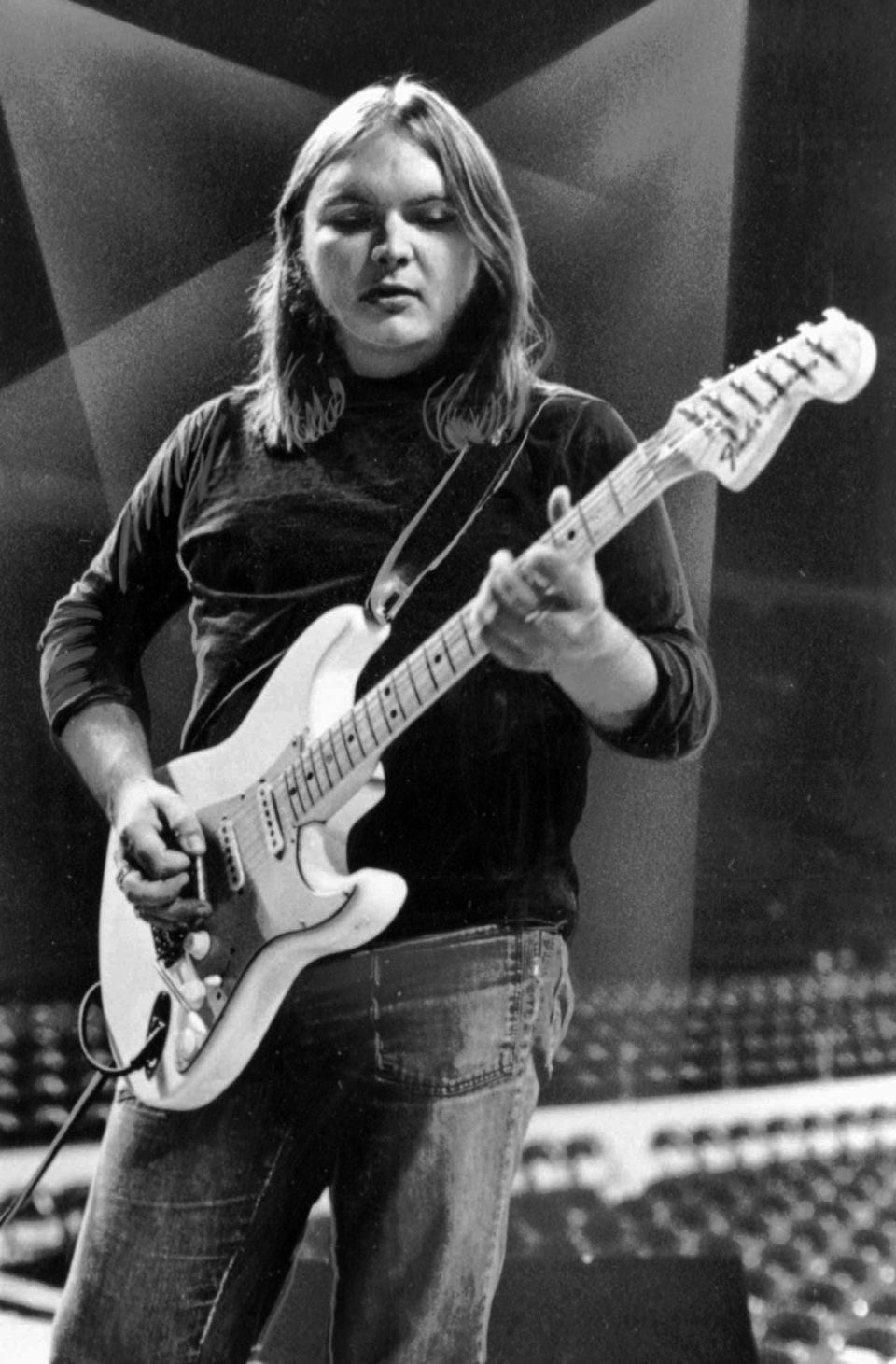
Now 79, Kooper, a member of both the Rock & Roll and Musicians halls of fame, already worked with his own share of musical greats at that time. The early 1960s Brill Building-era songwriter and rock session player's work includes playing the Hammond organ on numerous Bob Dylan songs from 1965's "Highway 61 Revisited," assisting in forming the jazz-tinged, blues-inspired rock and soul act Blood, Sweat and Tears in 1967, playing the French horn on the Rolling Stones' 1969-released "You Can't Always Get What You Want," not to mention his work with bluesmen Paul Butterfield and B.B. King, plus rock icons George Harrison, Jimi Hendrix and Tom Petty, among many.
His contribution to country's rock-tinged essence relates to being credited for "discovering" Lynyrd Skynyrd in Atlanta in 1972.
Kooper's detour to Atlanta in the early 1970s resulted from frequently visiting his friends in Atlanta Rhythm Section -- then a bluesy Southern rock band recently formed by artists who had recently backed Roy Orbison.
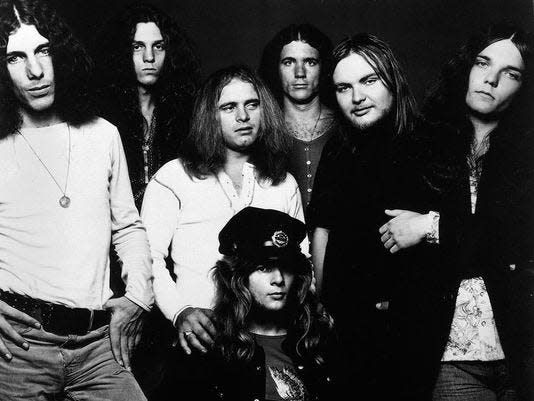
"For a young bluesy rock act of the era, they were very polished and had great arrangements," Kooper tells The Tennessean about the triple guitar-led group he saw every night at Funochio's from July 17-22, 1972.
"By the third night I'd heard them, they had floored me for three consecutive nights. So, the fourth night they played, I offered them a deal with the label MCA Records had offered for me to start Sounds of the South Records."
For Kooper, recording Skynyrd's debut album required taking their live club sound to the studio and maximizing the guitar work of Collins, Ed King and Rossington without "disturbing" the band's already well-established synergy.
This led to an album that, though Kooper admits to not being averse to editing his studio work, features lead single "Gimme Three Steps" being 90 seconds longer than radio's three-minute expectation and a second single, "Free Bird" -- released in Nov. 1974, which has mixes clocking in at both 9 and 11-minutes in length.
"Skynyrd's songs were better heard as album-ready journeys and live material, not radio-friendly cuts," says Kooper.
"This was a brilliant band that learned, long before they were in the studio with me, how to utilize all of its parts so well," Kooper continues. "You take away a guitar or the keyboard, they're an entirely different act."
A 'rhapsodious' album
The record's breadth and depth are not lost on artist, composer, executive, classically trained opera singer and International Folk Music Association "Spirit of Folk" Award-winner Lilli Lewis.

The self-proclaimed "Folk Rock Diva" is an African-American Atlanta native and acclaimed keyboardist who has spent a career in places where Lynyrd Skynyrd's debut album is on heavy rotation.
"'Pronounced 'Lĕh-'nérd 'Skin-'nérd' holds weight in the church and in the juke joint. Everything from Saturday night to Sunday morning is encapsulated in how these records are crafted and performed," says Lewis about the album's legacy.
"Few things are as rhapsodious as playing 'Tuesday's Gone,'" she adds.
"This is existentially visceral Southern music. From funk to gospel ballads in 12/8 time signatures, everything is there. Also, every lyric, note and riff is intensely related to how the band was raised in a community that was so clearly multi-ethnic and working class," Lewis adds.
Notable, too, is that Kooper being a native of Brooklyn, New York recording a group of post-teens from Jacksonville proved difficult.
"They knew of my background and were flattered that I was offering to record them, but I had to prove to them that I wouldn't change them," Kooper adds.
Lynyrd Skynyrd's lead singer Van Zant was a gun-owning fan of Muhammad Ali and professional boxing.
"If I changed them, Ronnie would've definitely let me know. He was the boss of that band. He'd have said the word and they would've walked out on me."
Notably, in the 2018 band documentary "If I Leave Here Tomorrow," a story is recalled about how Van Zant locked Kooper in Kooper's own automobile while the band recorded "Simple Man" -- the producer reportedly felt the poignant ballad about observing a mother's wisdom was one of Skynyrd's weaker cuts.
"Ronnie was great -- and real -- he required no preparation to go on stage. They were all like that," adds Kooper with a chuckle.
The demise of the band's 1977 lineup is one of the most tragic in modern musical history.
Following a performance on October 20, 1977, the band boarded a chartered jet to Baton Rouge, Louisiana. When the plane ran out of fuel, the plane violently crashed as an emergency landing was attempted near Gillsburg, Mississippi. The band's lead singer Ronnie Van Zant, guitarist Steve Gaines, Steve's older sister -- and backup singer -- Cassie Gaines were killed on impact. Other band members (guitarists Allen Collins and Rossington, bass player Leon Wilkeson, keyboardist Billy Powell, drummer Artimus Pyle, and background singer Leslie Hawkins) also suffered severe injuries.
With founding Lynyrd Skynyrd guitarist Gary Rossington's passing in March 2023, none of the founding original members of the band are still alive.
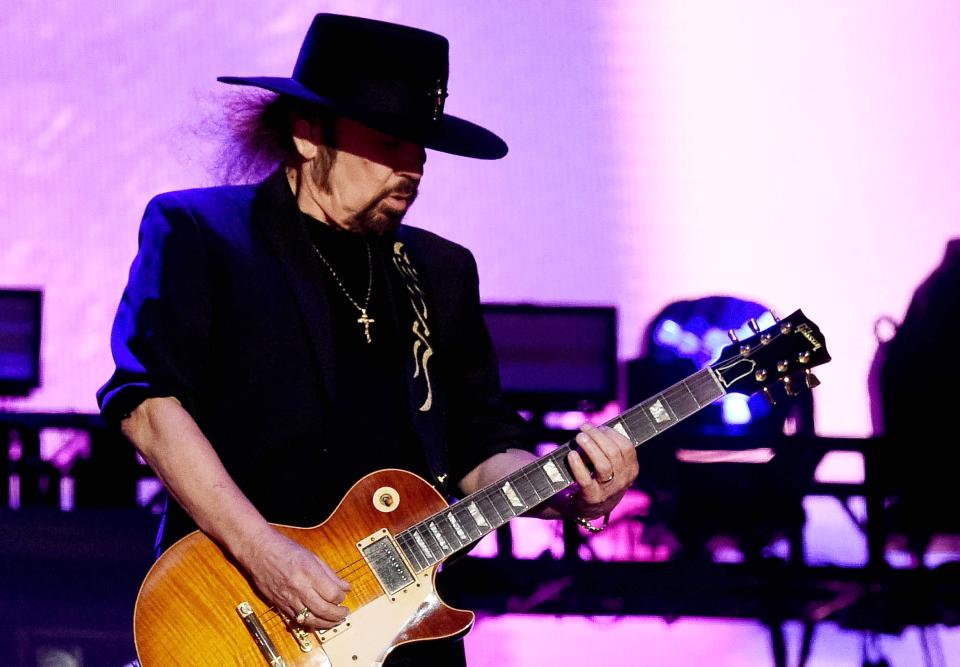
Fifty years after its release, Skynyrd's debut album is only a double-platinum seller, while "Free Bird" has yet to be certified platinum in America.
However, the band was inducted into the Rock and Roll Hall of Fame in 2005 and -- though debates raged about how many pre-crash members had to be in the band for it to be legally referred to as "Lynyrd Skynyrd" -- an act bearing that name with Ronnie Van Zant's little brother Johnny as lead vocalist, still tours to this day.
Jacksonville, Florida's 'good, bad and ugly' legacy
Lynyrd Skynyrd's songs being so unique to them feels strange unless you're speaking with former Starke, Florida resident Nicolette "Pillbox Patti" Hayford.
Starke is a suburb located an hour southwest of Jacksonville.
Hayford's, a Sony Music Nashville-signed country artist having a breakout moment breakout after over a decade in Music City, also finds truth in the band's first album.
"Foremost, Jacksonville's a dirty, hot, gritty and grungy ... place," Hayford tells The Tennessean.
"They were holed up for 12 hours a day sometimes in their practice shack -- they called it Hell House for a reason," she laughs. "Not much has changed in parts [of Jacksonville] since the early 1970s, too."
Skynyrd's sound and Hayford's upbringing exist in this multi-ethnic social space unified by trying circumstances.
"It's a harder, heavier side of life. You work hard during the week doing whatever you do to get by, hang out at the gas station before heading out to a tiny nightclub on the beach. You just want to feel better about like, your neighbor or family member nodding out on heroin, or whatever."
"That life is the good, bad and ugly truth of everything."
Can Skynyrd be replicated?
Kooper recalls receiving the first pressings of "Pronounced 'Lĕh-'nérd 'Skin-'nérd" while at MCA Records' Los Angeles headquarters and running into The Who's Pete Townshend.
Excited about what he had in the palms of his hands, he handed Townshend a copy of Lynyrd Skynyrd's debut.
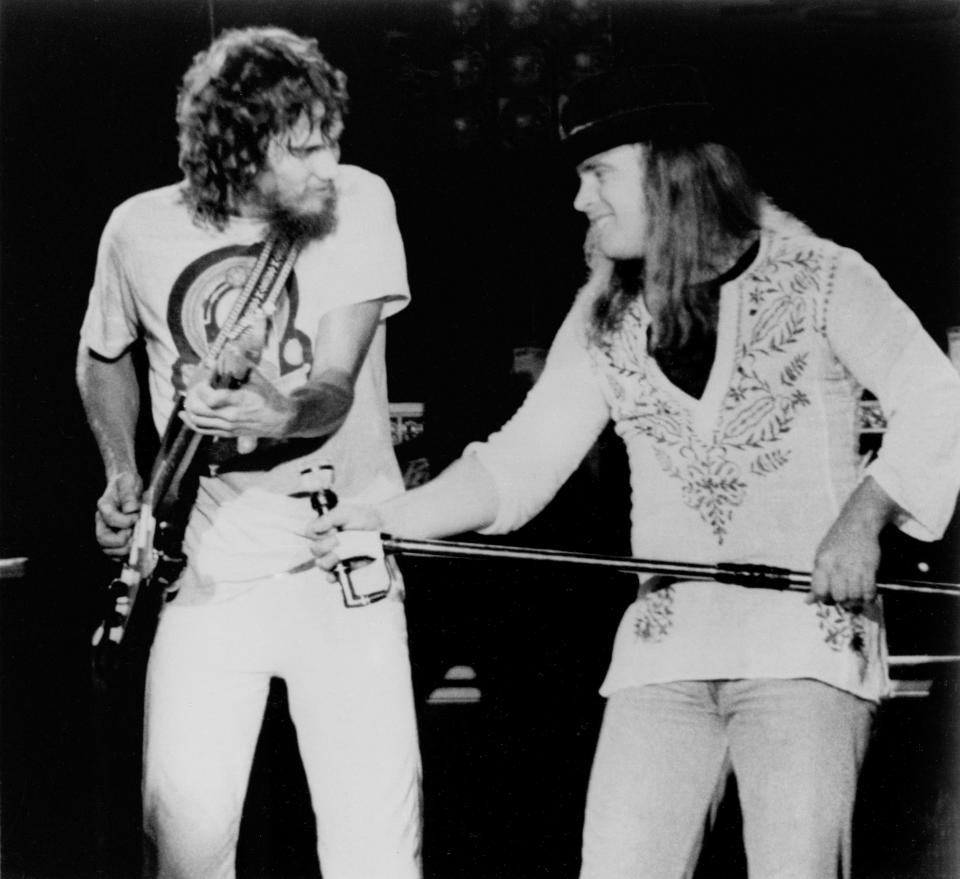
Townshend called his friend within hours and asked if Skynyrd could open on The Who's 1973 Quadrophenia tour.
"Lynyrd Skynyrd went from being a band with an unpronounceable name that nobody gave a s*** about to playing in front of 20,000 people every night and having a gold record a year later," remembers Kooper.
Two albums later, Kooper pulled Skynyrd, now on their eighth grouping as a unit and with only 17 days available at the start of 1975 during a frenetic touring schedule, into the studio to record "Nuthin' Fancy." Their third album yielded "Saturday Night Special" as its only single and that took 14 years to achieve platinum-selling certification via the Recording Industry Association of America.
It marked the last time Kooper worked with the group he "discovered."
"Skynyrd got so big, so fast. We just couldn't get our timing right to continue working together," he lamented.
Regarding mainstream country music's modern attempts to approach Skynyrd's sound, Kooper again laughs.
"Lynyrd Skynyrd were trendsetters -- nobody before or after will do it as well as they did it."
This article originally appeared on Nashville Tennessean: Examining Lynyrd Skynyrd's country, rock influence 50 years later

